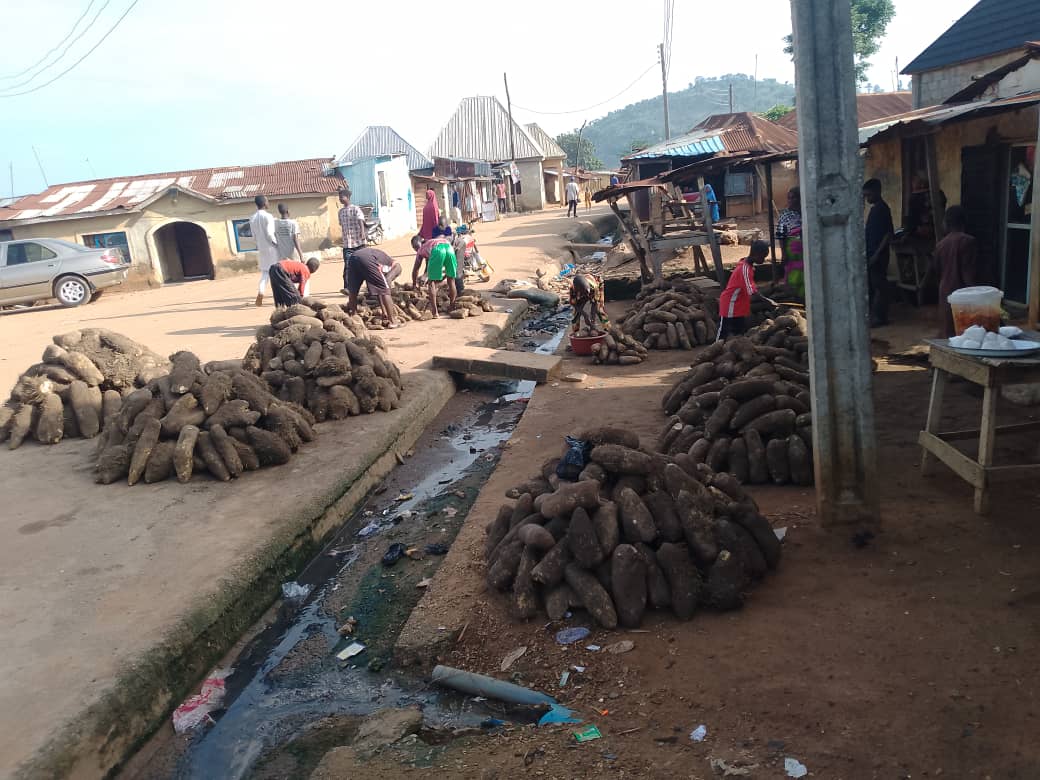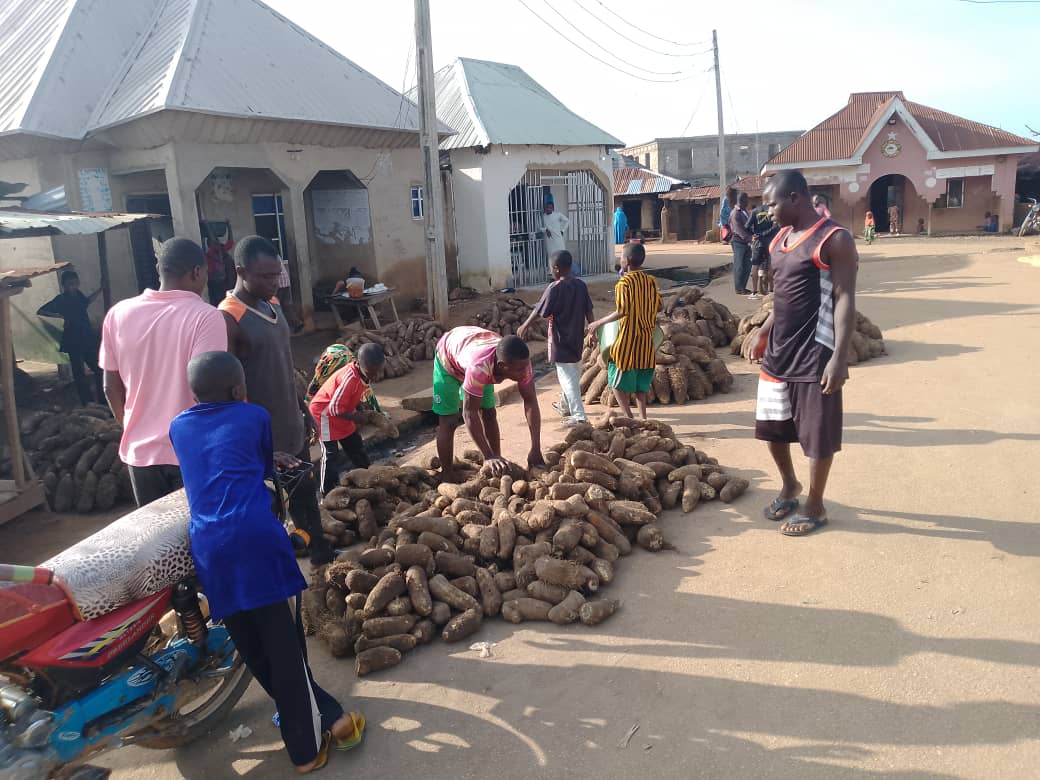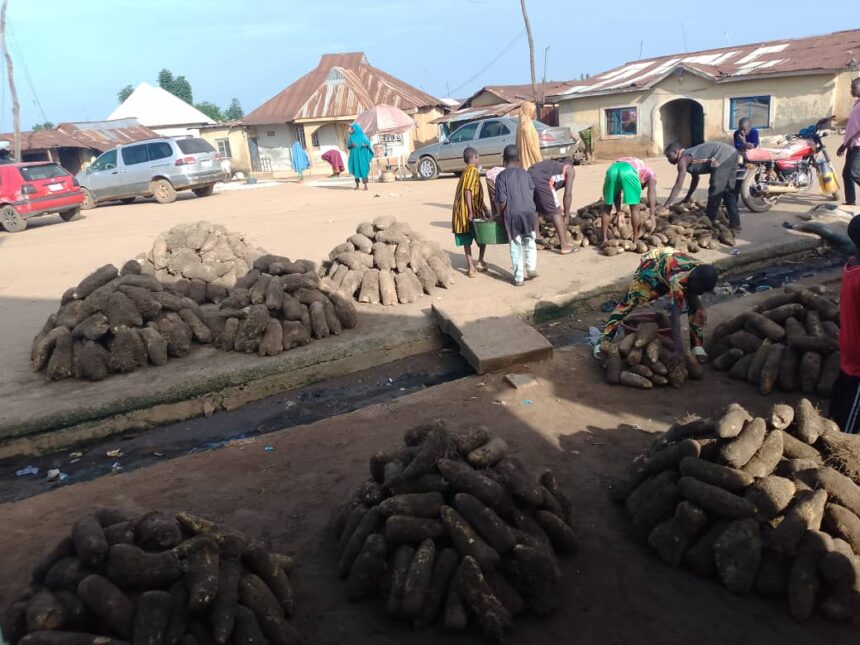By Ekuson Nw’Ogbunka, Abuja
The Village Head of Idu, Chief Muhammad Bawa Makama, has urged the government to support local farmers in the Federal Capital Territory (FCT) by providing them with land, fertilizers, and other resources. Speaking in his palace, Bawa emphasized the importance of agriculture to the community and the need for government intervention to ensure food security.

The royal father addressed journalists on Sunday in his palace at the village square where heaps of yams were displayed by a young and indigenous farmer.
He however highlighted the challenges facing farmers in the community, including land scarcity due to estate development. “We used to produce farm produce like yams, corns, rice, and beans in large quantities for consumption and sale, but unfortunately, we don’t have land again, due to the fact that our lands have been allocated to estate developers,” he said.

Farmer Nasir Mohammed, whose heaps of yam were displayed in front of the village square, echoed Bawa’s concerns. “There’s no more farmland left for us, because they have been giving out to estate developers by the government,” Mohammed said. “We want the government to intervene, for us to be able to have farmland again.”
He therefore outlined several solutions that could help farmers in the community, including:
Setting aside enough acres of land for farming; Stopping cattle rearers from damaging farms; Making fertilizers available to farmers at affordable prices and; Recognizing the interests of indigenes in the FCT Administration (FCTA)
Mohammed also emphasized the need for fertilizers and other resources to enable farmers to produce more. “If I can be given at least five to 10 acres, by the grace of God, we shall surprise the government, because we shall produce enough yams that can feed a lot of people in the FCT and environs,” he said.
The Village Head and the farmer are calling on the government to take immediate action to support farmers in the FCT. By providing land, fertilizers, and other resources, the government can help ensure food security and support the local economy.












